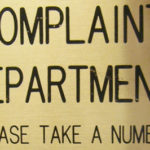A friend of mine has been receiving emails from her pastor, and I think he's a cyber-bully. What legal guidelines define cyber-bullying, even if a minister does the emailing?
Many states have prohibitions against cyber-stalking and cyber-harassment. According to the National Conference of State Legislatures, cyber-stalking is the use of the Internet, email or other electronic communications to stalk, generally in a pattern of threatening or malicious behaviors. Cyber-stalking, the most dangerous of three types of Internet harassment, poses credible threats of harm. Penalties range from misdemeanors to felonies.
Cyber-harassment does not involve a credible physical threat but involves threatening or harassing email messages, instant messages, blog entries or websites dedicated solely to tormenting an individual. Some states include cyber-harrassment through electronic communications in general harassment statutes, while others have created stand-alone cyber-harassment prohibitions. An excellent chart citing laws in various states can be found at the NCSL web site: www.ncsl.org/issues…/cyberstalking-and-cyberharassment-laws.aspx
The U.S. government website www.stopbullying.gov defines bullying as unwanted, aggressive behavior that involves a real or perceived power imbalance. The behavior is, or has the potential to be, repeated over time. Although the discussion is limited to children, bullying behavior by an adult—pastors are no exception—is an equal, if not more serious, problem. To be considered bullying, the behavior must be aggressive and include repetition and an imbalance of power.
 Power imbalances used to intimidate another exist in all age groups, and if the pastor's actions fall within the definitions, he is a bully, and his behavior should be addressed. Legally, this can be difficult. Freedom of speech gives us wide latitude to express opinions. The law is loath to censor Internet communications—even those that are obnoxious or hurtful.
Power imbalances used to intimidate another exist in all age groups, and if the pastor's actions fall within the definitions, he is a bully, and his behavior should be addressed. Legally, this can be difficult. Freedom of speech gives us wide latitude to express opinions. The law is loath to censor Internet communications—even those that are obnoxious or hurtful.
Threats of physical harm may be criminal, and shared slanderous falsehoods may subject the bully to a civil suit. In this case, a pastor's behavior may have violated a much higher law—Christ's command to love others as ourselves. The exchanges with the pastor should be examined to see if they rise to bullying or are strong expressions of opinion. Your friend can cut off communication and block emails considered out of line.
Your friend also should enlist the help of others to make sure she is not overreacting. If it appears the emails are repetitive and of a harassing nature, whether illegal or not, friends like you and church leaders should be enlisted to confront and put a stop to communications or behavior that are clearly hurtful.
Cynthia Holmes, attorney
Former moderator, Cooperative Baptist Fellowship
Sign up for our weekly edition and get all our headlines in your inbox on Thursdays
Clayton, Mo.
Right or Wrong? is co-sponsored by the Texas Baptist theological education office and Christian Life Commission. Send your questions about how to apply your faith to [email protected].














We seek to connect God’s story and God’s people around the world. To learn more about God’s story, click here.
Send comments and feedback to Eric Black, our editor. For comments to be published, please specify “letter to the editor.” Maximum length for publication is 300 words.